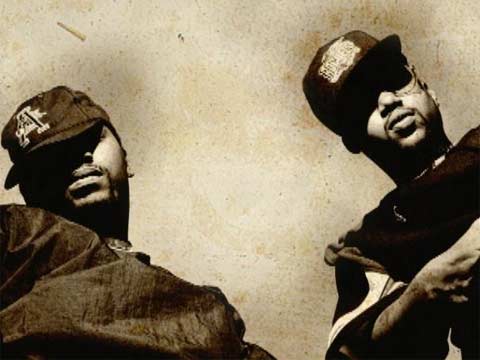Album Review: The National’s “Trouble Will Find Me”
Some cool August night in 2010, I was sitting in the passenger seat of my best friend’s car as we drove to another friend’s house. It was late at night and there wasn’t much traffic in our small town, so we made idle conversation and listened to the radio. The DJ was saying something about the next track being her favorite song of the summer, because she felt like it summed up how she’d felt about it, chiefly melancholic. It was by a band called The National, a band I had heard of but never seriously listened to. She introduced the song as “Bloodbuzz Ohio” and then began to play it. Shortly after, we arrived at the parking lot outside our friend’s apartment. My friend turned off the car. “Turn it back on.” I said. “I want to finish that song.” I got a raised eyebrow for my remark, but he turned the radio back on and we sat in silence for the rest of the song.
To call The National “sadcore” would miss the point, although Matt Berninger’s easily-identifiable baritone does seem to perpetually reside in that state two or three weeks after a big breakup where everything begins to slowly sink in. With a rhythm section liable to give you claustrophobia and minimalist guitar crunches synced with the occasional synth hit or string section, The National occasionally come off as a Joy Division minus the suicidal tendencies.
Yet, there’s something about their body of work that is oddly entrancing, even hypnotic. From their somewhat awkward alternative country beginnings to their trio of critically acclaimed albums beginning with 2005’s Alligator and ending with 2010’s High Violet, Berninger’s earnest vocals, mixed with word salad lyrics and beautifully tragic music have made them indie darlings. In those first few albums The National struggled to find their ideal sound, but by Trouble Will Find Me, the band’s sixth album, released earlier this week, they’ve perfected it.
Realistically, there could be no real follow-up to High Violet. The duo of Alligator and 2007’s Boxer ultimately served as teasers for High Violet, the critical and commercial peak of the band. As such, any new album was always going to be measured against their last offering.
Any song on Trouble Will Find Me would sound perfectly at home wedged into High Violet. In terms of exploring new ideas, The National have done very little in the last three years to evolve their sound. Berninger’s voice is as dramatically depressed as always, and the music provided by the guitarist Dessner brothers and their rhythm section counterparts, the Devendorf brothers, is simultaneously as intimate and bombastic as always. Given the success of High Violet, it’s understandable that they’d stick to the script for the follow-up.
It’s a tad disappointing, even so. On Trouble Will Find Me, The National largely stick to their middle-register. The slower ballads don’t match emotional heavyweights like “The Geese Of Beverly Road”, and the more uptempo almost-rockers never quite match the chaotic breakdown in the chorus of “Mr. November” or the rawness of rollicking stompers like “Murder Me Rachael” and “Available”. As a retrospective of their career thus far, Trouble Will Find Me sounds less like an alternate Greatest Hits and more like an alternate universe version of High Violet that was slightly less good.
In no way is Trouble Will Find Me a bad album. It doesn’t really even have any bad songs. Early single “Don’t Swallow The Cap” and first track “I Should Live In Salt” stand among the best songs the band has ever recorded, and the rest of the album offers more than enough to satisfy hardcore fans and casual listeners alike. As far as albums go, The National could have done far, far worse than release High Violet: The Sequel. It is a bit of a missed opportunity, but it still stands as a very good album, if not the great one that its predecessor was.


